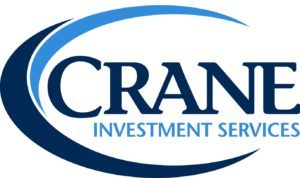Stocks
A stock is a type of security that signifies ownership in a corporation and represents a claim on part of the corporation’s assets and earnings. Stocks are also known as shares, or equity. Stocks are most commonly held in accounts, but can be held by the investor as a paper certificate.
Advantages
- Stocks as a whole have typically outperformed all other investment options over any ten year period.
- When you buy stocks, you take partial ownership of the company in proportion to the number of shares of each stock purchased.
- As an owner, you have an excellent opportunity to share in the financial success and growth of the company.
Disadvantages
- Stocks are volatile. A single stock’s share price can vary widely from day to day, month to month, and year to year depending on numerous factors that are beyond an investor’s control.
- Companies can and do go out of business, at which time their stocks usually becomes worthless.
- Both buying and selling stocks cost you money in the form of brokerage commissions.
Bonds
Bonds are debts that an entity (government, company, municipality, etc.) incurs in exchange for a sum of borrowed money. For example, a company might need funds to help finance its expansion. A city might need money to make needed repairs to its streets or municipal buildings.
Usually, the fastest way to raise the money needed is to sell bonds. In exchange for the money, the government, company, or city promises to repay the debt at a fixed interest rate, for a set period of time.
The indebted entity issues investors a certificate, or bond, that states the interest rate (coupon rate) that will be paid when the loaned funds are to be returned (maturity date).
Advantages
- Predictable. You know how much interest you can expect to receive, how often you’ll receive it, and when your principal (bond’s face value) will be repaid (maturity date).
- Bond prices are usually steadier than stocks.
- People on a fixed income and/or in retirement will receive a predictable amount of regular income from bonds.
- The interest rates paid by bonds are typically higher than those paid on savings accounts.
Disadvantages
- Companies and municipalities can go bankrupt, and if they do, bonds will lose value and possibly even become worthless.
- Long-term bonds can tie up investment dollars in low yielding bonds should interest rates go up.
Mutual Funds
In a mutual fund, assets from a large number of people are pooled together and invested, according to a shared or “mutual” investment objective, by a professional money manager. The performance of the fun is determined by the performance of the individual investments held in the fund.
Advantages
- Managed by investment professionals.
- Diversification.
- Affordable low minimum initial and periodic investment accounts.
- Convenience. Easy access to investments through sales or exchange of shares.
- Flexibility in matching a fund’s objective to the member’s objectives.
Disadvantages
- Loss of individual control for investment choices within the fund.
- Tax planning uncertainty. Mutual funds are required to distribute long-term capital gains in the year realized, so the investor loses control over the time of the realization and taxation of capital gains.
Annuities
Annuities, technically insurance products, are often used as an asset accumulation investment. An annuity is a tax-deferred investment that is sold through an insurance company that can provide a steady stream of income through a series of payments over a fixed number of years. The investor has many choices to decide when to begin the payments. Since it is an insurance product, if the investor passes away while owning the annuity the named beneficiary will receive a death benefit.
Advantages
- There is no limit on how much money may be contributed annually, unlike many other tax advantaged accounts.
- No mandatory withdrawal after age 70 1/2.
- There are a wide variety of annuity plans to choose from.
Disadvantages
- Contributions are not tax deductible.
- High penalties if early withdrawals are made.
- Minimal tax advantage for high-income tax payer because earnings are taxed as straight income, not capital gains.
- Fees and charges are typically higher than mutual funds due to the added insurance component.
Ready to get started? Contact us today!
Crane Investment Services advisors are registered representatives of CUNA Brokerage Services, Inc. Representatives are registered, securities sold, advisory services offered through CUNA Brokerage Services, Inc. (CBSI), Member FINRA/SIPC, a registered broker/dealer and investment advisor, which is not an affiliate of the credit union. CBSI is under contract with the financial institution to make securities available to members. Not NCUA/NCUSIF/FDIC insured, May Lose Value, No Financial Institution Guarantee. Not a deposit of any financial institution. CUNA Broker Services, Inc., is a registered broker/dealer in all fifty States of the United States of America.



